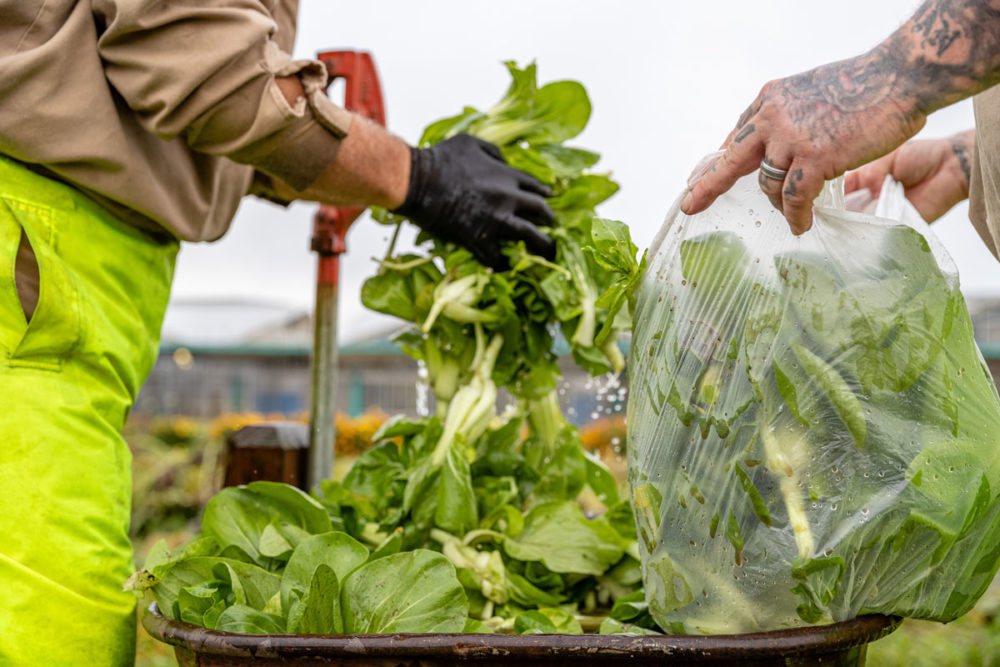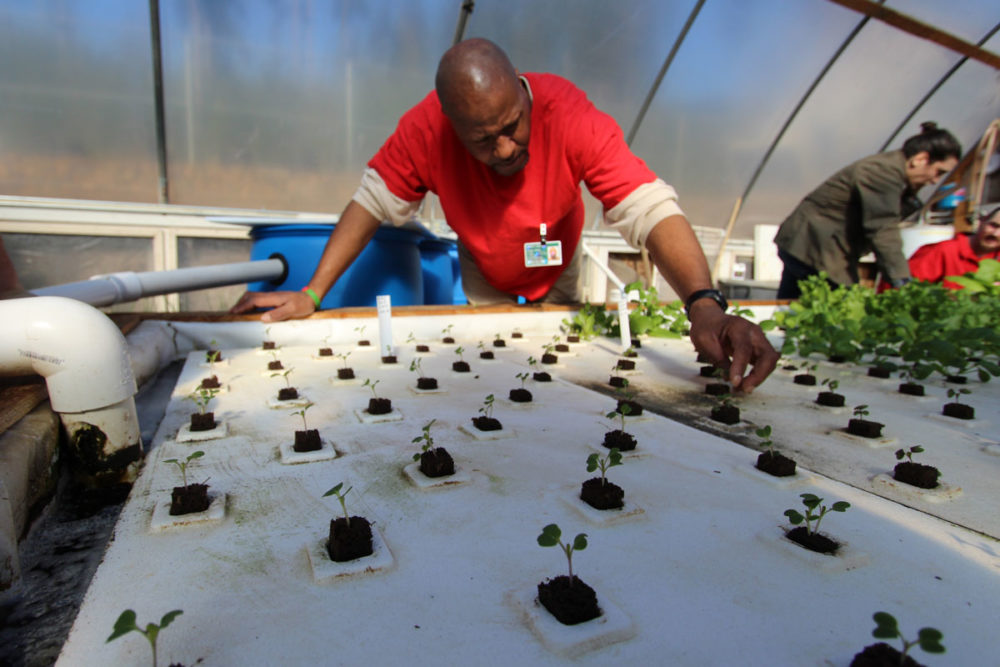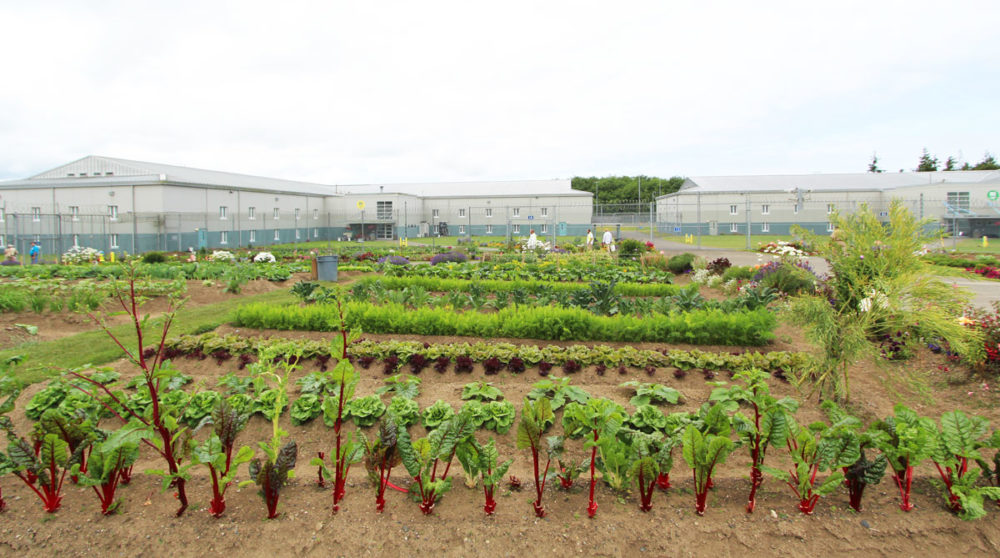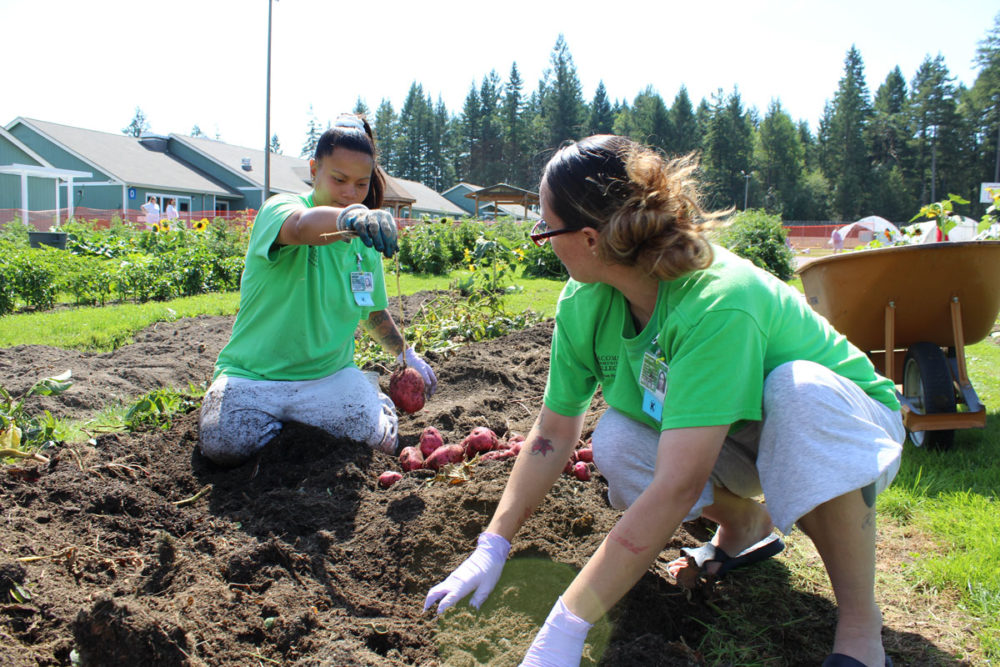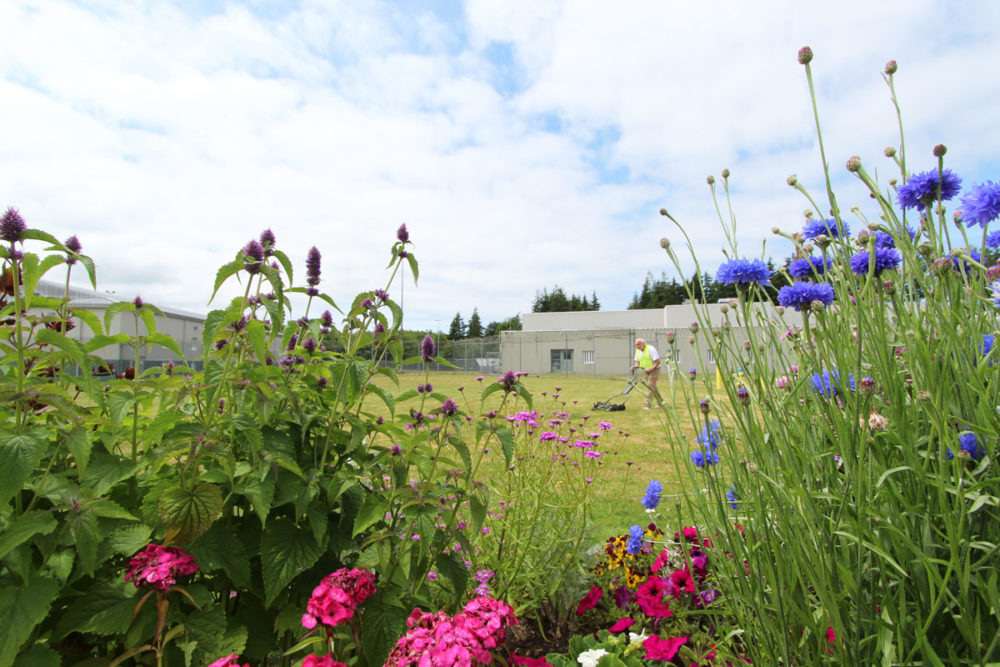Foundations in Gardening
Seed to Supper, Corrections Edition, plus Advanced Topics
SPP staff at Evergreen worked with numerous partners to develop a 4-credit class that provide the academic fundamentals of small-scale food production as well as the planning critical thinking and observation skills necessary to grow food and beneficial flowering plants. Topics include plant cultivation, healthy soils, garden placement, beneficial insects, and pest management. This course is flexible, designed for the corrections environment, and can be led by an instructor or peer leader. Where students have access to garden space, the course complements hands-on practices and formalizes gardeners’ acquired knowledge. The class is currently offered at Stafford Creek Corrections Center, Monroe Correctional Complex, Mission Creek Corrections Center, and Coyote Ridge Corrections Center.

To learn more & download the course pdf, use this link: https://docs.google.com/forms/d/e/1FAIpQLSe_XQL7W0frTmaXFnyd1Cjs99SlykKA-a1xHj_AnPNSnKk1UA/viewform?usp=sf_link
Course Intent
- Empower incarcerated individuals to educate themselves and each other with engaging, college-level content.
- Promote & recognize students’ academic, social, and professional skills.
- Build & support positive relationships and partnerships among incarcerated individuals, corrections staff & leadership, and outside partners.
- Support & improve gardening programs at the host facility.
- Increase access to fresh produce for the incarcerated population.
- Increase access to nature & care for living things for the incarcerated population and corrections staff & leadership.

Course Learning Objectives
- Define basic principles used to plan, plant, and care for small-scale gardens.
- Classify plants for garden planning, development, and care.
- Compare the needs of each hardiness zone as it relates to planting and crop selection.
- Apply mathematical principles to horticulture and phylogenetic trees.
- Evaluate the historical context of gardening and the influence of colonization through inquiry and class discussions.
- Design planting plans.

Course Structure
- Academic Credit: students can earn 4 credits in Introduction to Horticulture during incarceration through SPP’s Prior Learning Portfolio program at The Evergreen State College or elective credit with HS+.
- Peer-led: program partners create a plan for who will facilitate, who will clerk, and who will offer expertise on various topics.
- At least $50 for every student; that’s the printing cost for a 500-page coursebook and every student needs their own. SPP-Evergreen supplies books to all Washington State programs.
- 100+ hours of content
- Supported by staff sponsors who track class & student completion; report completion & class feedback to SPP-Evergreen; award SPP-Evergreen certificates or Documents of Completion. Programs planned and implemented without SPP-Evergreen staff will need to develop their own certification program.
- Without electronic equipment needs — no PowerPoints or videos included in the course.
- For best results, provide classroom time for group study plus garden time for hands-on practice. The classroom space may be indoors or outdoors (conditions permitting). Ideally, students have access to garden space as a group throughout the course; other approaches may work fine and will be less optimal.

